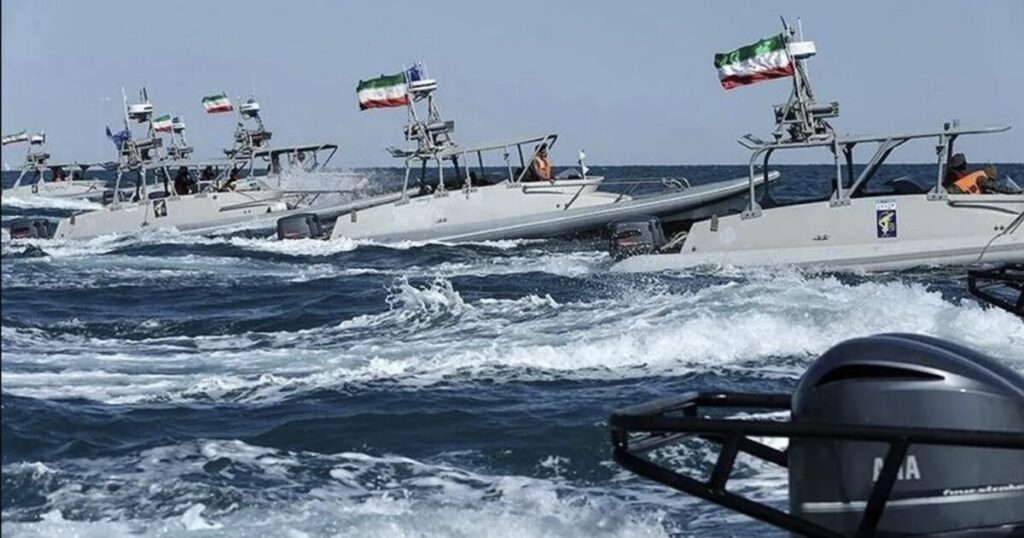The left’s doomsday predictions ignore military reality and America’s energy and military dominance.
Democrats are already spreading panic about $15 gas prices following President Trump’s decisive strikes on Iran’s nuclear facilities. But these apocalyptic predictions rely on scenarios that simply won’t happen under strong America First leadership and our constitutional republic’s military superiority.
It’s important to understand that America is no longer hostage to Middle East oil. Today’s gas price hysteria comes from people stuck in the past. Unlike the 1970s oil crisis Democrats love to reference, the U.S. now enjoys true energy dominance. We produce more oil than we consume. Under Trump’s first term, we became a net oil exporter.
The Energy Information Administration confirms that the U.S. imports only about 500,000 barrels per day from Persian Gulf countries, roughly 7% of our total crude oil imports. Compare that to China, which gets over 50% of its oil imports from Persian Gulf countries (including Saudi Arabia, Iraq, UAE, Kuwait, Qatar, and Oman), while Japan and South Korea, both heavily dependent on Middle East oil, would be devastated by any Gulf disruption.
For gas prices to reach the catastrophic levels Democrats are predicting, Iran would need to successfully capture and hold the Strait of Hormuz, the narrow waterway through which 20% of global oil flows. But this scenario is military fantasy, not reality.
For over 40 years, the United States has refrained from direct military engagement with Iran, even after the 1979 seizure of the U.S. Embassy in Tehran and the 444-day hostage crisis. But Operation Midnight Hammer marks a turning point in U.S.-Iran relations, signaling that the United States will no longer tolerate escalating aggression from the Islamic Republic.
If Iran attempts to close the Strait of Hormuz, it would be tantamount to declaring war, not just on the United States, but on every major economy on Earth. Such an act would trigger an immediate and overwhelming American military response, one that would make Operation Midnight Hammer look like a warning shot.
The same regime threatening to close the Strait of Hormuz depends on it for its own survival. Iran exports most of its oil to China through this very waterway. Closing it would be economic suicide, cutting off their primary revenue source while inviting devastating American retaliation that our unitary executive authority can deliver swiftly and decisively.
Defense experts note that the U.S. maintains a massive military presence in the Persian Gulf, including the Fifth Fleet in Bahrain. Any attempt to mine or blockade the strait would face immediate destruction from American forces already positioned and ready to respond. This is peace through strength in action.
Unlike the Biden administration’s pathetic response to Houthi attacks in the Red Sea, Trump’s action against Iran’s nuclear program demonstrates that there are clear red lines that won’t be crossed under his administration.
It is ironic hearing Democrats suddenly worry about gas prices when they’ve spent years trying to shut down American oil production through their cultural Marxist environmental policies. These are the same people who cancelled the Keystone XL Pipeline on Day One, restricted drilling on federal lands, pushed the Green New Deal to eliminate fossil fuels, and celebrated high gas prices as necessary for their climate extremism.
Now they’re using foreign threats to create panic about energy costs they’ve been trying to increase through regulation and taxation.
The Iran strikes enhance American energy security by eliminating a nuclear threat without causing the oil disruption many feared. This decisive show of military deterrence reinforces U.S. strength while avoiding a wider conflict that could destabilize global energy markets. By neutralizing Iran’s nuclear program, President Trump protects key Gulf allies, major oil producers, helping ensure a stable global supply. The operation also undercuts Iranian threats to shipping lanes and reaffirms U.S. dominance in the region.
But dismantling the nuclear threat isn’t the only benefit. Iran is the primary destabilizing force in the Middle East, backing groups like the Houthis, who disrupt Red Sea shipping; Hamas, which is at war with Israel; Hezbollah, which destabilizes Lebanon; and militias fueling violence in Syria, Iraq, Bahrain, and Yemen. It is hoped that these strikes will also degrade Iran’s ability to fund and support its proxy network, opening the door to greater regional stability.
The greatest threat to affordable American energy isn’t Iran. It’s domestic policy. While Republicans focus on energy security through increased production and constitutional governance, Democrats continue to push policies that raise costs: rejoining the Paris Accord, imposing carbon taxes, blocking pipelines, and mandating expensive renewable transitions.
Trump’s handling of the Iran crisis reflects conservative foreign policy rooted in our constitutional republic, Peace Through Strength, by deterring aggression through overwhelming force; America First, by defending U.S. interests without entangling the nation in endless wars; and Energy Dominance, by reducing reliance on hostile regimes through domestic production.
Read the full article here


